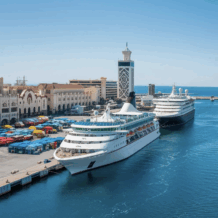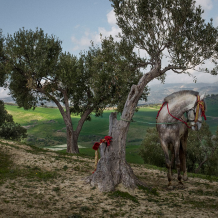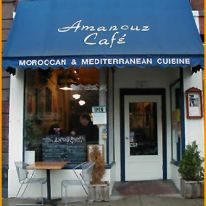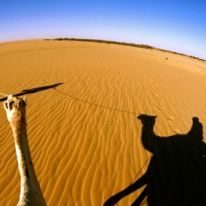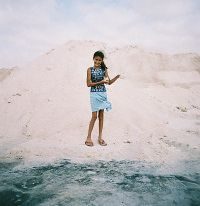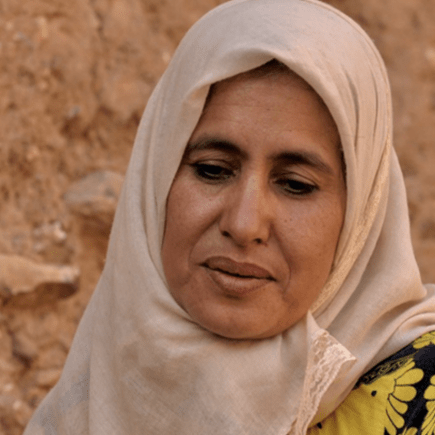
The 61st Edition of the Festival dei Popoli featuring documentary films will take place from November 15th until 22nd, 2020 in Florence, Italy. The festival is a collaboration with MYmovies and will have an in-depth focus on women’s liberation in the Arab world. The 2020 special feature is the Moroccan Jawad Rhalib’s documentary film ‘Fadma: Even Ants Have Wings.’
The Festival dei Popoli is a non-profit organization founded in 1959 by a group of scholars in the humanities, anthropology, sociology, ethnology, and mass-media studies. They maintain their own archives that feature over 25,000 titles, from videos to films.
They remain active in the promotion and study of social documentary cinema and have attracted a significant amount of young professionals to film. This year’s core is training for young documentary filmmakers at Doc at Work – Future Campus.
Some of the Filmmakers featured in past editions are Claire Simon, Thomas Heise, Peter Mettler, Isaki Lacuesta, Andrés Di Tella, Marcel Łoziński e Paweł Łoziński, Jos de Putter, Mary Jimenez, Danielle Arbid, Kazuhiro Soda. Roberto Minervini.

The Festival dei Popoli has a tradition of addressing subjects such as architecture, the evolution of the urban landscape, and immigration. Among others, the Festival presented the following focuses: “Alì in the City – Contemporary Migration Patterns: Drifts and Destinations”, “Looking for Neverland”, “Domino Effect – Dreams and Nightmares of Contemporary Power”, “Habitat”.
Each year’s anniversary a new concept is created. The 50th annual Festival presented a retrospective, called “The Feeling of Being There. 1958-1965: Seven Years of Documentary Cinema”, a selection of twenty-four short films that changed the history of documentary cinema.
Their 60th anniversary was celebrated in 2019 during which time the Festival presented the retrospective “Diamonds are Forever”, a selection of 20 authentic “moments of great cinema” produced in the past 6 decades and directed by internationally renowned film directors, reunited to compose an invaluable jewel.
This year 2020 special attention sheds light on Morocco, with the documentary film ‘Fadma: Even Ants Have Wings’ by writer and director Jawad Rhalib hailing from Belgium & Morocco whose films focus on Human rights issues, globalization, profits, and social realism. Jawad Rhalib was born in 1965 in Morocco to Belgian Moroccan parents. He graduated from the Catholic University of Louvain-La-Neuve. He studied in various institutes in Europe. and originally became a journalist before he began making films in 1997.
Jawad Rhalib’s work El Ejido, la loi du profit garnered several awards including Best Documentary at Fespaco. He also directed The Damned of the Sea, which won the Public Award at Visions du Réel in Nyon, the Grand Prize at the Monte Carlo Festival, and was nominated at the European Academy Awards. His first fiction feature film, 7, rue de la Folie, was selected at Valladolid, Festival du Nouveau Cinéma in Montréal, and Namur.
Rhalib’s film ‘Fadma’ debuted in Italy on Monday, November 16th, on Più Compagnia, an online cinema that has been set up due to COVID-19 restrictions. The screenings will continue online at the Festival dei Popoli platform through November 22nd.
‘Fadma’ narrates the story of a feminist in a small community in the High Atlas of Morocco where the villagers go about their daily lives, which are based on an unquestionable division of labor. The women clean, prepare food for every meal, look after children, take care of the animals, and twice a day go down to the river for water.
The men have snoring fests or sit at cafés for long hours when fieldwork is scarce. This undisputed old-age order gets a clink with the arrival of Fadma, a progressive woman, and her family are from Casablanca.
Once Fadma and her family appear in the village, Rhalib, When Arabs Danced, follows the local women down to the river to get some water and trek back to the village. When they complete their quotidian journey, the men are playing cards and drinking tea at the coffee shop. One says “We have nothing here but playing cards. Meanwhile the women have no time to rest because they must move on to doing the laundry”.
Fadma didn’t join them to get water or laundry. She came to the village to enjoy her holidays and she is seeking only for rest. Also, Fadma believes the men could participate, help out the women, and urges the women to ask for help, get some rest and find a solution. She tells them, “Woman is equal to men…The slave woman, that’s over”. A few days after, Fadma started to shake things up. She speaks with the women and gets them to express themselves in turn.
She asks them questions, sharing her observations on the inequality in the division of labor between the woman and men. the women get upset in return and decide to discuss with men about how to change the division of labor. Fadma agrees to take on the initiative with the village women. Right from the start of the attempted dialogue, one quickly begins to feel the frustration the women have with the men. The dialogue fails, with the men adamant that “women aren’t men’s equals, that’s how it is here.” But the women decide to strike: they drop off everything they used to do and the men took it as it is a declaration of war. A day later, one says to the other, “I prefer to eat poorly rather than concede. Never accept humiliation.”
A week later, both the men and women begin to realize that compromises will need to be made. This time, the discussions happen with a mediator from the mosque present. What do they agree to? Do women succeed?

